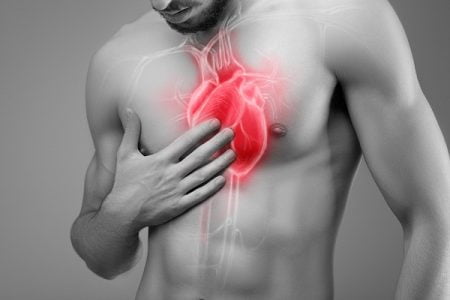What Are the Signs and Symptoms of Enlarged Heart (Cardiomegaly)?
- Updated on: Jun 11, 2024
- 2 min Read
- Published on Apr 19, 2021


Enlarged Heart Symptoms: How to identify enlarged heart signs?
Symptoms of cardiomegaly depend on its cause. In some people, an enlarged heart causes no signs or symptoms. Others may have the following signs and symptoms:
- Shortness of breath may occur when physically active or lying flat
- Abnormal heart rhythm (arrhythmia) or palpitations
- Raspy voice may occur when physically active or lying flat
- Swelling on the legs (edema)
- Fatigue
- Weight gain around the abdomen
- Breathing problems
- Dizziness
- Fluid retention
When symptoms appear, it may be because the heart fails to pump enough blood properly. This can lead to congestive heart failure.
Symptoms of an enlarged heart are generally similar to the symptoms of congestive heart failure, because the heart is unable to pump blood effectively.
Some patients may never develop any symptoms, so the enlarged heart may remain undiagnosed and only gets detected during an examination for another condition. It is therefore important to meet your doctor if you notice any warning signs so that early diagnosis can help prevent progression of the condition.
Often, depending on the cause of the enlarged heart, other symptoms may be experienced. If you’re not feeling right, it’s always good to meet a doctor for investigation further.
The patient may also experience cough or fluid retention that can cause inflammation. Complications depend on which area of your heart is enlarged and what is the underlying cause for the enlargement.
When to see a doctor
An enlarged heart is easier to treat if it is diagnosed and treated early. You should talk to your doctor if you have troubles in your heart.
If you note signs or symptoms that may be thought due to problems to your heart, you should book an appointment with your doctor.
When do you need a medical emergency?
If you experience a heart attack, it is important to consider it as a medical emergency and seek help immediately.
If you experience the following enlarged heart symptoms, seek emergency treatment immediately because this may signal a heart attack:
- Severe chest pain
- Severe difficulty in breathing
- Fainting or near-fainting












